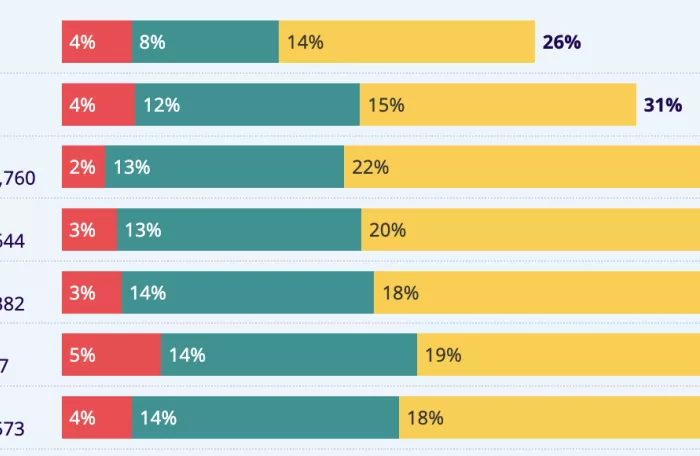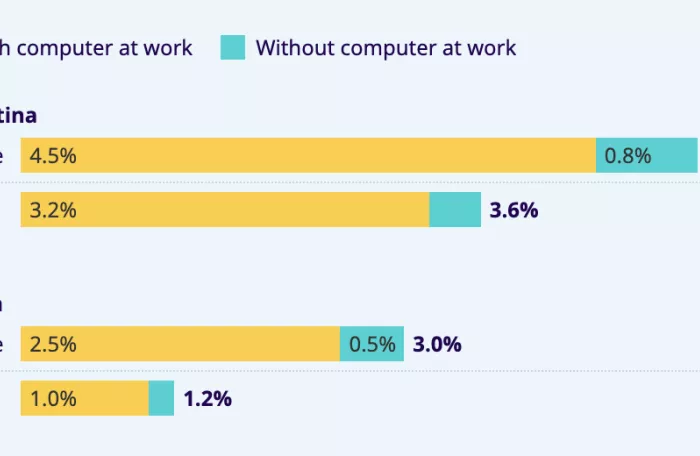ILO Working Paper 121 - Joint publication ILO-World Bank
Buffer or Bottleneck? Employment Exposure to Generative AI and the Digital Divide in Latin America
In this new paper from the International Labour Organization and the World Bank Group, researchers found that Generative AI could have transformative effects on jobs and livelihoods in Latin America and the Caribbean. Nonetheless, gaps in digital infrastructure and other inequalities could hinder the potential impacts of Generative AI in the region.
Key messages
Latin America and the Caribbean has long grappled with a persistent productivity gap, which has partly been the result of barriers to innovation and technology adoption, especially compared to other regions that have narrowed their gaps with high-income economies in recent decades. It is also one of the most unequal regions in the world, with millions of workers in low-paid jobs in the informal economy. Historically, new technologies have shaped the evolution of labour productivity, inequality, and prosperity across the world. Understanding whether Generative AI can help remove some of the barriers to economic development is critical for the design of policies.
- Overall, a total of 26-38% of jobs in Latin America and the Caribbean could be exposed to Generative AI.
- Generative AI could result in a productivity-enhancing transformation of 8-14% of jobs, with a higher likelihood in urban, educated, and formal sectors, and among higher-income earners.
- About 2-5% of jobs are at risk of full automation due to the current capabilities of Generative AI.
- Up to half of the jobs that could improve productivity with Generative AI – about 17 million jobs – are hindered by gaps in digital access and infrastructure.
- Governments should implement policies to protect jobs, enhance productivity, and maximize the transformative potential of Generative AI to promote more inclusive growth and sustainable development.

Employment exposure to generative artifical intelligence

Comparing access to a computer at work among men and women
Questions and Answers
Additional details
Author(s)
- Paweł Gmyrek
- Hernan Winkler
- Santiago Garganta
References
- ISBN 9789220410028 (print)
- 9789220410035 (web PDF)
- ISBN 9789220410042 (epub)
- ISBN 9789220410066 (mobi)
- https://doi.org/10.54394/TFZY7681

Generative AI could transform millions of jobs in Latin America and the Caribbean but digital divide poses challenges

Topic portal
Artificial intelligence